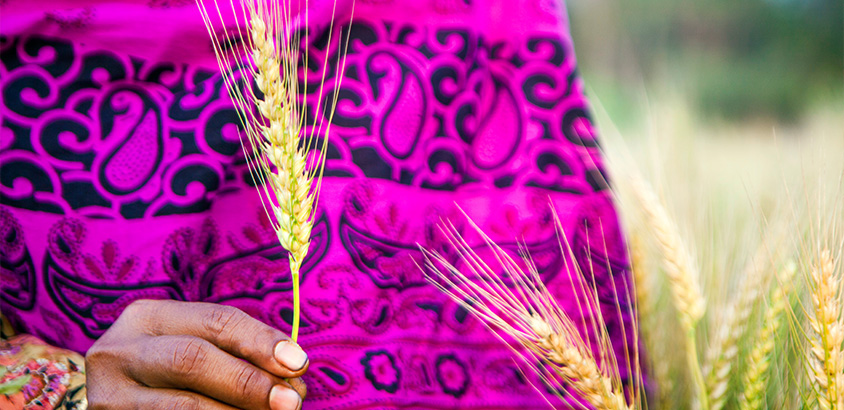Building Wheat’s Resilience to Heat in South Asia
 Enhancing the productivity of the rice-wheat cropping systems in the Indo-Gangetic Plains is essential for ensuring food security for more than 20 percent of the world’s population. Such enhancement is particularly important in the relatively impoverished and food insecure regions of eastern India, Nepal and Bangladesh.
Enhancing the productivity of the rice-wheat cropping systems in the Indo-Gangetic Plains is essential for ensuring food security for more than 20 percent of the world’s population. Such enhancement is particularly important in the relatively impoverished and food insecure regions of eastern India, Nepal and Bangladesh.
In the eastern Indo-Gangetic Plains, farmers must regularly contend with risks posed by high temperatures during the wheat grain filling period. These risks can reduce yields by more than 50 percent — even with good management. In addition, progressive climate change has already affected the region, making adaptation to heat stress an urgent near and longer-term priority for ensuring regional food security and climatic conditions are expected to worsen significantly in the coming decades.
Under the CSISA umbrella, the International Maize and Wheat Improvement Center (CIMMYT), in close collaboration with the national wheat programs in India, Nepal and Bangladesh, has released new wheat varieties with higher yield potential, which perform well even in the stress-prone areas of the eastern Indo-Gangetic Plains.
Nevertheless, the long-term solution to heat stress cannot be found in any single technology; it must draw from several approaches, including adjustments to management practices, genetic advances, efficient irrigation technologies and mechanization.
CSISA efforts have identified timely wheat planting as the most important contemporary determinant of wheat yields in farm fields across the eastern Indo-Gangetic Plains. In 2009, CSISA began to promote early sowing of wheat to combat the negative effects of rising temperatures.
Due to ingrained habits in places like the eastern Indian state of Bihar, few farmers were initially willing to sow their wheat in early November, even on a trial basis. Through community-based evaluations and collaborative research trials with partners such as the Research Complex for the eastern region, CSISA has built a compelling body of evidence for the importance of early planting. As a result, public perception and official recommendations have changed, resulting in more than 600,000 farmers planting wheat earlier in the Indian states of Bihar and Uttar Pradesh.
CSISA has also worked to expand access to sustainable intensification technologies that facilitate early planting methods, such as zero tillage. With assistance from CSISA, more than 1,600 entrepreneurs are currently providing zero tillage services to over 100,000 households in eastern India and farmers have achieved significant wheat yield gains (20 percent) and cost savings ($100 per hectare).
With USAID’s Feed the Future support, CSISA pursues climate-smart strategies that are profitable today and fully supported by the public and private sectors to help farmers in the eastern Indo-Gangetic Plains build toward a more food secure future.
This article is authored by Andrew McDonald, CIMMYT Cropping Systems Agronomist and CSISA Project Leader. It was originally published in the Feed the Future Newsletter.
Tags: EWS, Heat Stress, Stress Tolerance, Wheat, ZT
